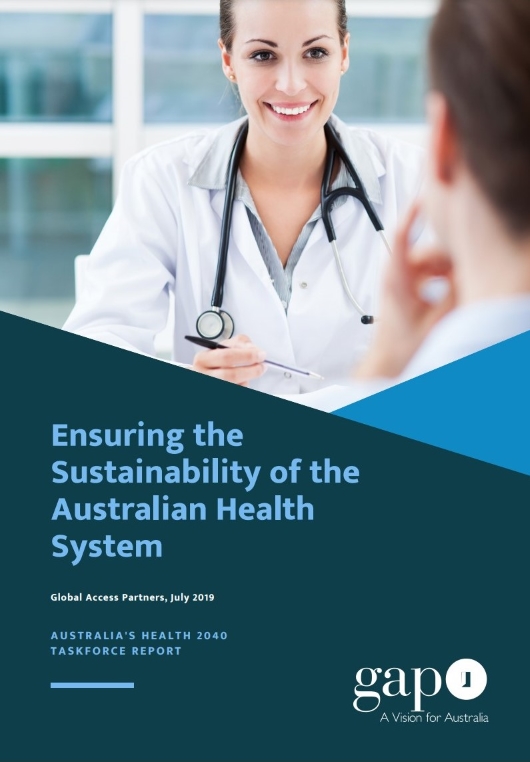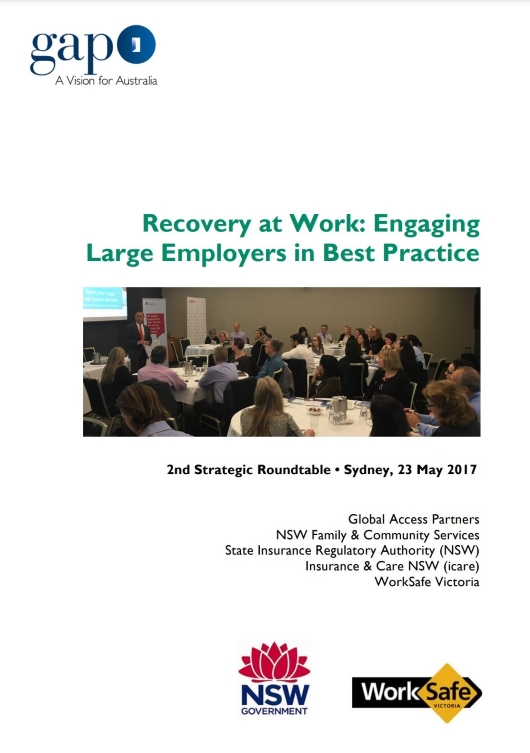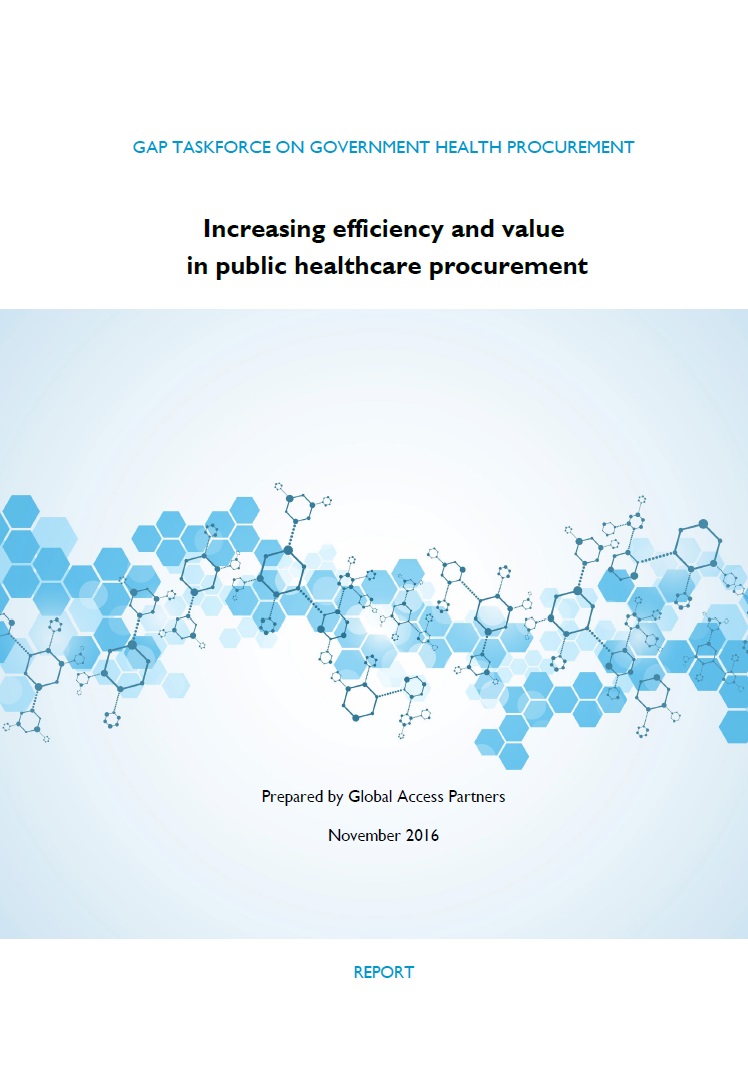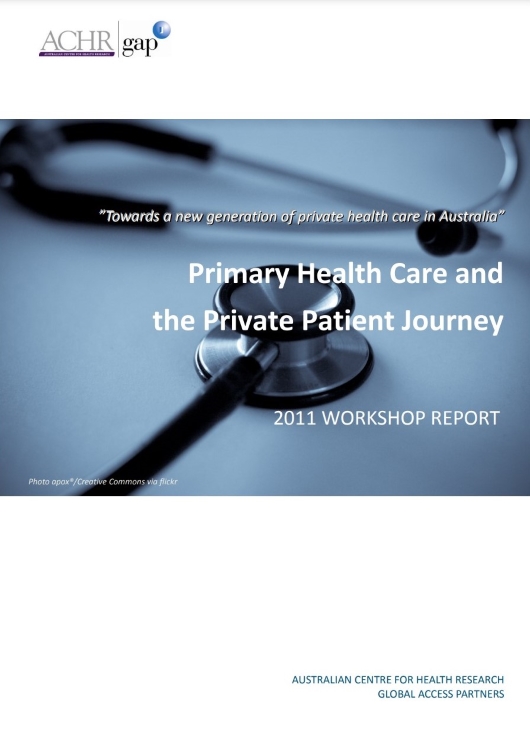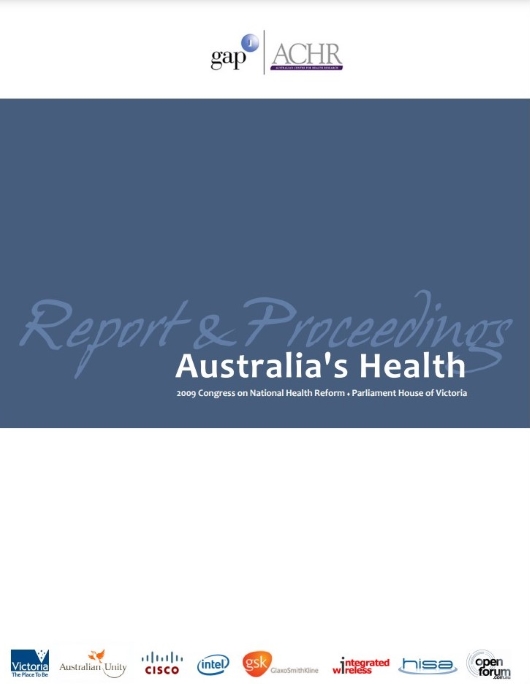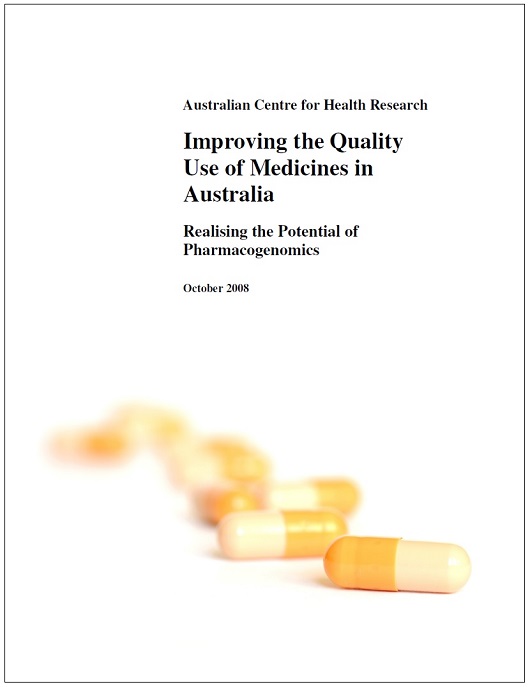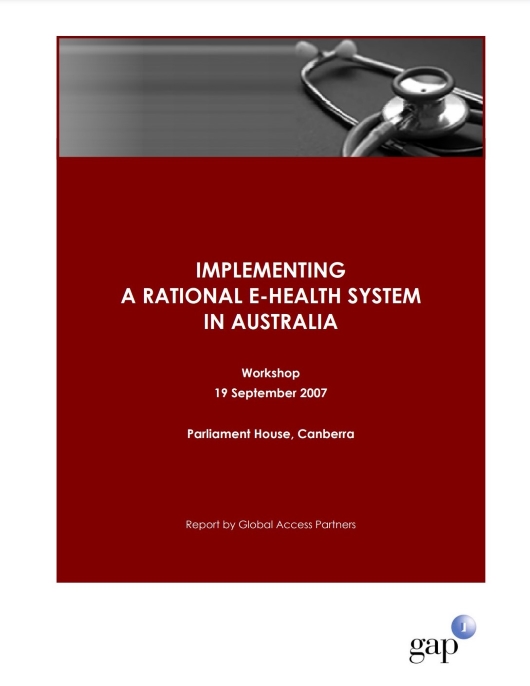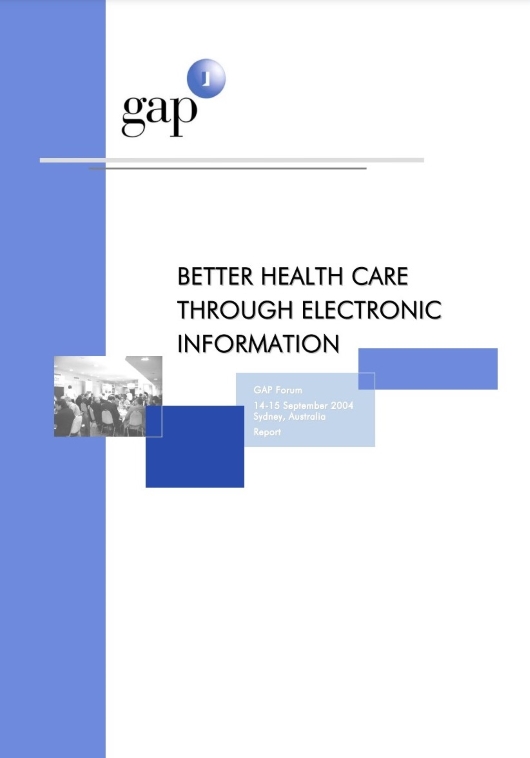HEALTH
AUSTRALIA’S HEALTH 2040: THE RIGHT CARE, AT THE RIGHT PRICE, IN AN EFFICIENT SYSTEM (2019)
Australia’s Health 2040, a cross-disciplinary taskforce facilitated by Global Access Partners and chaired by Martin Bowles AO PSM, released its final report on 8 August 2019, outlining 19 reform options for the Australian health system to ensure a more sustainable future. The report’s proposals range from improving prevention and chronic disease management, better mental health services and more effective cover for dentistry, particularly for children and vulnerable groups, to greater investments in primary care technology, the elimination of low-value services, transparency around patient outcomes, and standardised national health data collection and reporting. Reforms aim to improve Australians’ quality of life and equity of health outcomes, as well as balancing the system’s cost-effectiveness with the safety, quality and sustainability of service provision. The Taskforce was co-funded by GAP, EY, Bupa Health Foundation, Johnson & Johnson Australia and Westpac.
RECOVERY AT WORK: ENGAGING LARGE EMPLOYERS IN BEST PRACTICE (2016-17)
On 23 May 2017, GAP hosted the second in a series of strategic discussions on the health benefits of work and early intervention. The roundtable considered ways to encourage recovery at work after soft tissue injuries and the opportunities for larger-scale implementation of best-practice return-to-work protocols. Latest research shows that by improving RTW rates for injured employees, organisations can reduce absenteeism, improve health and work outcomes for injured workers, and cut government and employer costs.
The second event built on the outcomes of the First Roundtable Recovery at Work A New Way of Thinking About Work Injuries held on 5 May 2016.
The Roundtable series was an initiative of the GAP Standing Committee on Productive Ageing and was co-sponsored by GAP, NSW Family & Community Services, State Insurance Regulatory Authority, Insurance & Care NSW (icare) and WorkSafe Victoria.
GAP TASKFORCE ON GOVERNMENT HEALTH PROCUREMENT (2015-16)
This cross-sectoral multidisciplinary group was established by GAP to analyse Australia’s public health procurement and offer practical proposals for reform. The Taskforce considered the impact of procurement processes on the age and reliability of medical equipment, service levels, innovation and competition. Its final report highlights some of the inefficiencies of current health government purchasing and calls for a more rational tendering process to reduce costs and waste in the system, while improving the quality and safety of care.
GAP/ACHR WORKSHOP “THE AUSTRALIAN HEALTHCARE SYSTEM AS A MARKET” (2015)
The event brought together a select audience of health practitioners, industry leaders and consumer advocates to discuss the key issues affecting the Australian healthcare system’s productivity, efficiency and performance and the drivers behind the rising costs of care. The GAP report from the workshop outlines how the use of ‘market quality frameworks’ pioneered by Capital Markets CRC could improve the dissemination and understanding of health data across stakeholder silos, reduce waste and, in the longer term, improve clinical efficiency and consumer choice.
GAP TASKFORCE ON SELF CARE: “TOWARDS RESPONSIBLE SELF CARE: THE ROLE OF HEALTH LITERACY, PHARMACY AND NON-PRESCRIPTION MEDICINES” (2015)
The final report of the Taskforce was launched by the Hon. Sussan Ley MP, Minister for Health, on 23 June at Parliament House in Canberra. The group examined the potential of self care to improve individual and public health outcomes and play a greater role in health policy. It emphasised the importance of health literacy and the expanded role for pharmacies and non-prescription medicines in supporting responsible self care and reducing government expenditure. As well as enabling a more efficient health system, these factors are consistent with a growing desire by health consumers to become more involved in their own health care.
“PRIMARY HEALTH CARE AND PRIVATE PATIENT JOURNEY”: ACHR/GAP WORKSHOP (2011)
The Australian Centre for Health Research and Global Access Partners brought together thought leaders from primary health care, private hospitals, private health insurance and consumer health organisations to address issues related to private health reform, in a workshop on 2 March 2011 in Melbourne. The workshop explored the issues that emerged via an extensive stakeholder consultation commissioned by the ACHR in the lead-up to the event. It found scope for further multidisciplinary discussion specifically around topics such as e-health, health IT, service gaps, the expanding role of health funds and better advocacy of the private sector’s role in pursuing quality of care.
GAP TASK FORCE ON AUSTRALIA’S HEALTH (2009); GAP/ACHR CONGRESS ON AUSTRALIA’S HEALTH (2009)
The 2009 Task Force on Australia’s Health, run by GAP in association with the ACHR, examined a range of proposed and possible health reforms and the improvements required for the health system to effectively meet the future needs of the Australian population. The work of the task force complemented the findings of the National Health and Hospitals Reform Commission and culminated in the GAP/ACHR Congress on Australia’s Health at Parliament House of Victoria in November 2009 and the release of the Task Force report “Structural Barriers to reform of the Australian health and public hospital system” authored by Ken Baxter.
NATIONAL PHARMACOGENOMICS CONSULTING GROUP (2008)
This group was brought together to examine the medical and economic benefits and effects of pharmacogenomic testing in diagnostics and drug therapy. The work of the group culminated in the release of a report “Improving the Quality Use of Medicines in Australia: Realising the Potential of Pharmacogenomics” in October 2008 prepared by Deloitte Economics in consultation with NPCG. The report predicted significant healthcare savings if pharmacogenomics were widely adopted in Australia, and was taken up by the Victorian Government to inform its 2010 Pharmacogenomic Decision Support System project with Melbourne Health.
IMPLEMENTING A RATIONAL E-HEALTH SYSTEM IN AUSTRALIA: GAP FORUM (2007)
This roundtable discussed possible solutions and actions to make progress in the area of widening acceptance and implementation of e-health, based on the research led by Prof Michael Georgeff of Monash University.
GAP CONGRESS ON WELLNESS & AGEING (2007)
Held in Parliament House of Victoria in February 2007, the congress explored the concept of preventive healthcare and increasing general “wellness” of the population as a means to better manage Australia’s healthcare issues.
BETTER HEALTH CARE THROUGH ELECTRONIC INFORMATION (2004)
This forum brought together executive stakeholders from government, industry, research and the vendor community to discuss national priorities and further steps in building an interoperable health care system in Australia. The Australian National Consultative Committee on Health (ANCCH) was established as a result of the forum in 2005.
